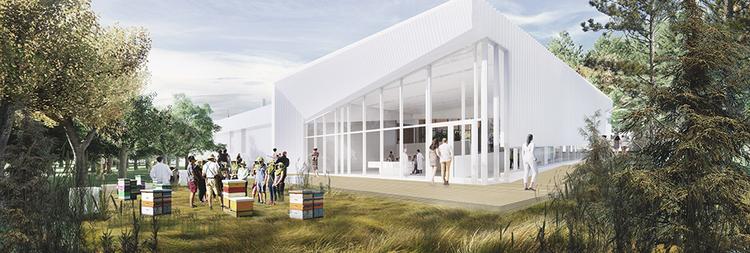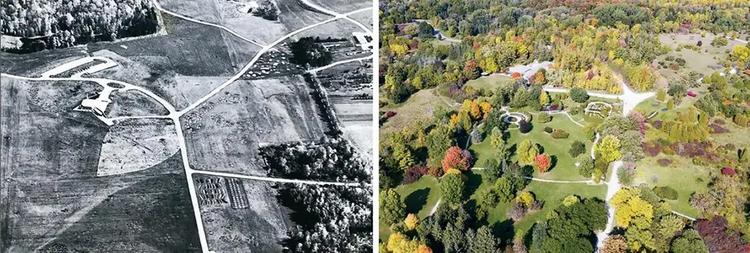Ontario Agricultural College 150th Stories
150 Years of Discovery, Impact and Growth
At the heart of OAC's success lie the remarkable stories of the community, whose unwavering dedication, passion, and innovation have fueled the 150 year journey. In commemorating the 150th anniversary, three themes capture the essence of this milestone: Discovery, Impact, and Growth. Explore the stories that bring these themes to life.
Discovery
From embracing new ideas and fostering innovation to finding a sense of self and community, OAC has shaped lives and fueled exploration in research, education, and beyond.
"I was able to connect with the people here...OAC has provided me a lot of communities where I could join and be a part of."

First year memories
Mary McEwen started her studies 57 years prior to Sandreka Rowe’s first year. As you’d expect, much has changed but there are consistent themes as well. Chemistry remains to be a tough first year course and the friends you make last a lifetime. Read, "First year memories" here.

A starting point for reconciliation
Explore the evolving significance of land acknowledgments in Indigenous reconciliation, as shared by Dr. Cara Wehkamp, OAC alum. Gain insights into their impact on relationships with land and Indigenous peoples, and discover practical implementation strategies. Read, "A starting point for reconciliation" here.

U of G Breaks Ground on New Honey Bee Research Centre
Discover the buzz around the groundbreaking Honey Bee Research Centre. This state-of-the-art facility aims to combat honeybee colony losses, expand research, and enhance public outreach. Learn more about the new HBRC.
Impact
From tackling challenges through collective action to empowering individuals to make a difference, the OAC community is driven by a desire to create positive change and leave a lasting impact on society.
"The legacy, the name stands out here. When you work with the farmers, when you go to the field and talk to a farmer, the moment they hear that we are part of the OAC...they would love to work with us."

How can we create a more secure, nutritious and safe food system?
Global agriculture grapples with climate change, food insecurity, and technological disruption. Discover how OAC tackles these challenges, shaping a more efficient, prosperous, and sustainable food system. Learn about OAC research is this area.

U of G-Developed Techniques for Reducing Cattle Methane Emissions Awarded
Groundbreaking innovation in genetic selection to reduce methane emissions in dairy cattle earned the 2023 Innovation of the Year Award. Using advanced techniques, researchers identified traits for emission reduction, contributing to global sustainability. Learn more about the 2023 Innovation of the Year.

New Master of Sustainable Agriculture Program
OAC is proud to announce the launch of the Master of Sustainable Agriculture (MSAg) program, aimed at cultivating global leaders in agricultural sustainability. Advanced training in sustainable practices and agri-tech innovations awaits. Learn more about the MSAg program here.
Growth
From stories of personal and professional growth, to exploring creative solutions. At OAC, knowledge and skill development intersect with community evolution and collaboration.
"In many ways I think it's so wonderful that the OAC that I knew back 70 years ago, is really here in many ways, but they've kept up with the times."

Back in the day… memories from an OAC '51
In 2021, the OAC Class of 1951 commemorated its 70th anniversary. Renowned for their tight-knit community, their legacy is explored through an interview with distinguished alumnus Dr. Clay Switzer. Read, "Back in the day… memories from an OAC '51" here.

U of G Student Project Sweetens Experiential Learning
Hot Honey, crafted by food science student Krupa Thakkar, blends spice with experiential learning. Born from surplus Cannon Fire peppers, it's a sweet testament to hands-on education. Learn more about the hot honey project.

A 50-year-old living laboratory
Rooted in a dream since 1939, the University of Guelph Arboretum flourished from a single ironwood in 1970. Celebrating over five decades, it's now a sprawling 400-acre oasis of research and natural beauty. Learn more about the Arboretum here.

